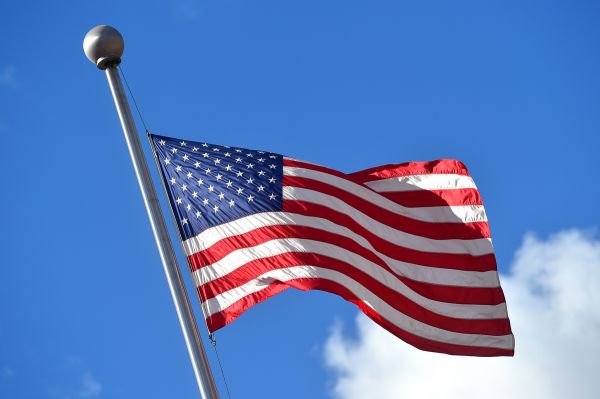Opinion: We should all be concerned about anti-transgender laws in Arkansas
The UCI should find a new host for the 2022 UCI Cyclo-cross World Championships

Brook Watts announced that he is pulling out of the 2022 UCI Cyclo-Cross World Championships in Fayetteville, Arkansas, come January, and will not serve as the race organizer. He also bowed out of the Fayetteville World Cup.
“The situation in Arkansas remains problematic,” he stated. “And I don’t see any satisfactory solution...I remain dedicated to continuing to use my position of influence in the cyclo-cross community to fight for equity in racing, and to ensure that the sport is accepting and welcoming to all.”
But where we are right now, cycling is none of those things.
This announcement comes weeks after Arkansas governor Asa Hutchinson signed a law banning trans girls and women from participating in school sports according to their gender identity.
Just days later, that same governor, Asa Hutchinson, signed into law legislation allowing medical workers to refuse treatment to LGBTQ+ people or anyone else because of religious or moral objections.
Similar discriminatory bills are being considered in Texas, Tennessee and various other US states as well.
With Arkansas set to host several national and UCI-sanctioned cycling events, including the 2022 UCI Cyclo-cross World Championships, some riders responded with outrage, calling upon USA Cycling to host their events in states that aren’t blatantly discriminatory.
Get The Leadout Newsletter
The latest race content, interviews, features, reviews and expert buying guides, direct to your inbox!
Unfortunately, the initial response from USA Cycling’s CEO Rob DeMartini — "It would be different if our athletes were going to be affected, but we don't believe they will be.” — the subsequent “Inclusion Summit” and statement denouncing Arkansas’ anti-transgender laws, have fallen short.
Once again, the cycling world struggles with genuine inclusivity and fails to recognise the seriousness of the situation.
The political climate in the US is growing increasingly hostile, and civil rights — like being in control of our own bodies, getting medical treatment, being protected against hate crimes and even to play sports — are under threat.
No matter what DeMartini might believe, these social hostilities are very much present in cycling and impacts all of us. While still tremendously lacking in visibility, LGBTQ+ folks ride bikes! They’re in pro peloton, in your local midweek crit, on your club ride. They’re your colleagues, your neighbors, your family.
Of course they are, because the bike and outdoor industries are mere microcosms of the societies that surround it — the good and the bad. Cycling and bike racing doesn’t happen in isolation. It crosses country, state and city borders. It beautifully unites the world through the universally enjoyed activity of riding a bike. It also has never been free of politics, and it certainly has never been a safe, egalitarian and welcoming space for all.
How many decades have we been calling for more opportunities for women in this sport? How many openly gay men can you name in the pro peloton? How welcomed did Veronica Ivy, formerly known as Rachel McKinnon, feel after winning her masters track title? How many LGBTQ+ cyclists are going to be competing in Fayetteville in the next year and will not feel safe to do so? Unprotected against hate crimes and discrimination, and unsure if you’d receive the proper medical care should you need it - would you feel safe and welcomed?
Choosing Arkansas as the host of a premier international sporting event is about more than a venue. Among the various duties the cycling governing bodies are charged and entrusted with, is the safety of its members. All of them. If the host city, region, or country of your event blatantly discriminates against your members, and you therefore cannot guarantee the safety of your riders, then that venue should simply be deemed unacceptable and boycotted.
Inaction from USA Cycling or the UCI here, to me, is a clear message of unwelcome or disregard to LGBTQ+ riders everywhere.
The bike industry keeps saying it wants to inspire, empower and welcome more women, more people of color, more underserved communities to hop on a bike. Well, the time has come to stop talking and take action.
Yes, it will be uncomfortable. It will mean making those tough decisions, last- minute changes and probably cost more money. It will mean doing things differently, welcoming new perspectives and listening to your stakeholders — especially those who have often gone unheard. But that is good governance. That is, to quote UCI’s values, “uniting people thanks to cycling and make it the inclusive and universal activity of tomorrow.”
Don’t just say “everyone is welcome.” Show us.
What you, the reader, can do:
- Don’t renew your USA Cycling licence until they take action and move their major events out of the states that don’t align with their stated values.
- Write to USA Cycling and make your voice heard.
- Write to the UCI or your national governing body while you’re at it.
- Bike companies like Allied, Rapha, Orbea and more are all based in Arkansas. Write to your favorite brands and ask them for a response like LIV just did.
- Educate yourself on what it means to be trans or part of the LQBTQ community, and gain some empathy.
- Start grass roots: What’s happening in your local community? If you’re a parent, find out what’s going on in your kid’s sporting community. Are all kids allowed to partake?
- Speak up and start conversations.